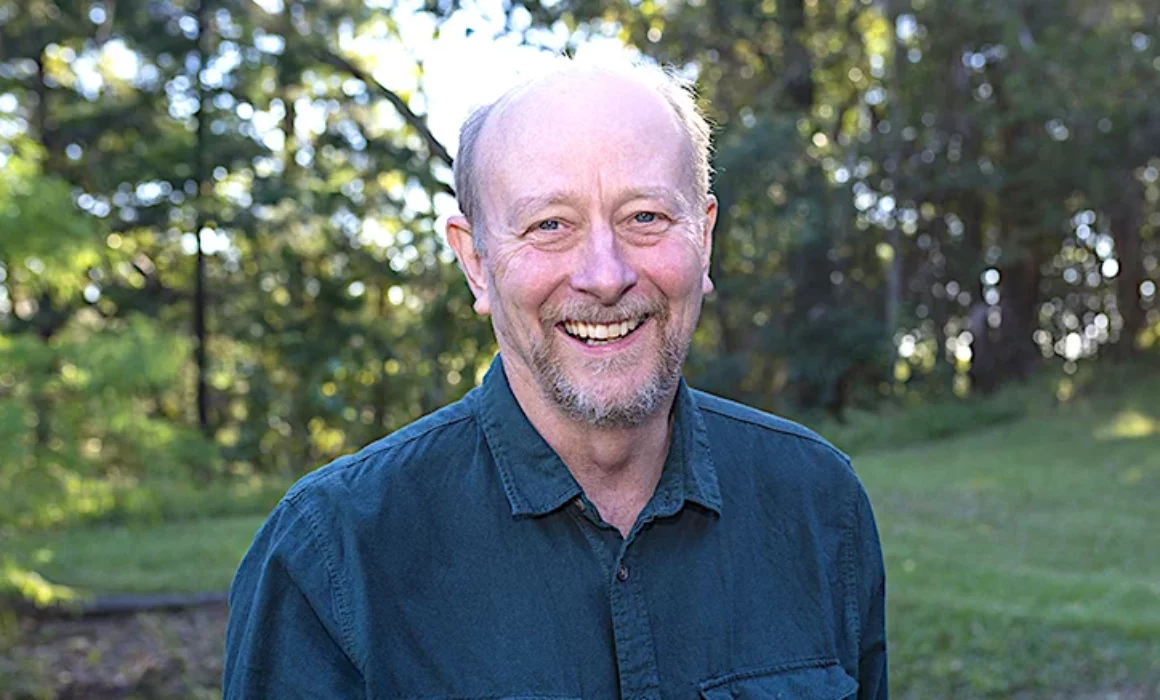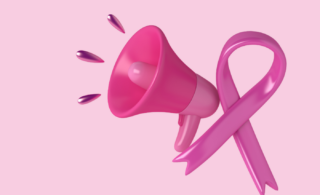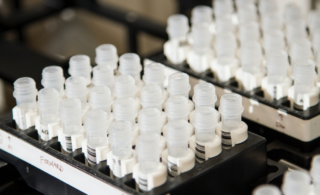
Rod Ritchie’s story sheds light on the often-overlooked issue of male breast cancer, the need for more gender-inclusive awareness and the importance of self-examination for men.
By Rod Ritchie
Sitting in my doctor’s waiting room for a visit to find out the reasons for a breast lump, the last thing on my mind was breast cancer. I was relieved when, on this visit, and a subsequent visit, I was assured that all was well. A month later, with an obviously inflamed chest, I insisted on an ultrasound. The sonographer’s eyes nearly popped out of her head examining the screen, and I knew I was in for bad news. When the results arrived via a phone call from my doctor, a well-oiled modern medical system was set into gear for me and I began treatment with six doses of chemo before undergoing a mastectomy and axilliary clearance, without reconstruction. The following 33 doses of radiation were sold to me as “insurance” for my aggressive Stage III Grade 2 inflammatory breast cancer.
I was lucky to have a very skillful surgeon, and she was bemused when I asked, “is there any reconstruction”? While it is possible to rebuild a facsimile of a guy’s breast, she explained, the lack of extra breast tissue makes this difficult and actually inhibits the surgeon who really has to work hard to round up the affected tissue. So, like nearly all men with breast cancer I know, no reconstruction is our lot in life. No complaints though, and a scar comparison becomes part of the greeting amongst men like me, along with a warm man hug.
Naturally, upon diagnosis, I scrambled to search the Internet for any information about my new disease, particularly as it affects males. I found out that while there was very little research on men, treatments for women appeared to be effective for men as well. There was emerging evidence, however, that men with breast cancer could benefit from more personalised treatment. It’s now agreed that men have a poorer prognosis than women because we are diagnosed later due to our reluctance to present ourselves, and since our health practitioners are not recognising symptoms of the disease early enough.
At the end of treatment, my oncologist wrote me a prescription for Tamoxifen, regarded as the gold standard for guys since we are nearly all eostrogen receptor positive. I know of no man who has had side effects from this drug, although I understand that it affects many women adversely.
Most breast cancer patients agree that post-treatment is a new ball game. The security of regular medical contact slips away, you’re on your own, and as you train your physical and mental health into shape, you have loads of time to reflect. That is, reflect via the medical minefield of the Internet. While you find lots of discussion and fellowship, you’ll find few guys discussing this disease. Men generally loathe talking about their medical issues, and many are very embarrassed that they have been diagnosed with a “women’s disease.”
The Sea of Pink
One percent of all new breast cancer cases diagnosed are in males. As a man who is happy to talk about his breast cancer diagnosis and treatment, I’m always quick to point out that the care I received was first class and was equal to that of the many women I was treated alongside. But, in a 2012 study that assessed more than 13,000 male breast cancers from the US National Cancer Data Base, men with breast cancer were found to be less likely to survive the disease than women. They are also more likely to be diagnosed with an advanced disease; the overall 5-year survival rate in men is 84% compared to 90% in women.
October can be a bad time for male breast cancer survivors. The cancer has been trivialised and sexualised by well-meaning groups and pink charities, and commercial exploitation of the disease has reached great heights. If you’re a guy with this disease, you’d better get used to pink, because that’s the colour the breast cancer charities use in their rapacious advertising campaigns as they look for more funds for research and “awareness-raising” campaigns. That is, more research and awareness for breast cancer in women, despite public awareness that breast cancer is genderless running at around 35%. Because the male cohort is so small, and the men so geographically widespread, we are rarely studied. Breast cancer campaigns must shift from awareness-raising to evidence-based information that does more to help Stage IV people, and does not trivialise the disease or reinforce it as female.
Why are pink charities resisting adding men to their advertising and promotional efforts? Until they make more of an effort to de-gender this disease, they own the situation that leads men to later diagnoses and poorer prognoses. Our manifesto lays all this out for them.
Choose Your Parents Wisely
Two years post mastectomy I had a prostatectomy as the sole treatment for an aggressive prostate cancer. By then I was well aware of the genetic risks, and a BRCA gene test found a variation of unknown significance for BRCA 1. My mum died aged 40 from breast cancer, and while I didn’t want to worry people unnecessarily, I also didn’t want to underplay the threat to my daughter and son, my siblings, and other family members. My daughter was admitted to a high-risk public screening program, but my son, with the same genetic history, gets no special screening.
Treatment for Mum 55 years ago consisted of a radical mastectomy and frighteningly high radiation doses that left her right chest quite disfigured. That was her full treatment, since chemo and hormone blockers were not yet available. I realise that I’ve been lucky to live in a wonderful medical era, and that I have benefited from many advances in breast oncology since then. But, I’m determined to call out breast cancer groups that continue to ignore men, so that my buddies, and those newly diagnosed men, don’t have to go through this disease alone.
Rod Ritchie is a 72-year old Australian print and web publisher who advocates for guys with breast cancer. Rod is President of the Board of Directors of the Male Breast Cancer Global Alliance and posts on Twitter as @malefitness.
To return to the homepage of our Information Hub, click here where you can access more helpful information, practical advice, personal stories and more.
You can also find community on the Future Dreams Instagram page.
Future Dreams hold a range of support groups, classes, workshops and events to help you and your carers during your breast cancer diagnosis. These are held both online and in person at the London-based Future Dreams House. To see what’s on offer and to book your place, see here.
September 2020 (Reviewed February 2024)
This article was written by a guest author based on their own experience of breast cancer and its treatment. It is important to note that this is one person’s experience and that whilst there may be commonalities between the experiences of different people, everyone has a different diagnosis/treatment plan/general experience. The information and content provided in all guest articles is intended for information and educational purposes only and is not intended to substitute for professional medical advice. It is important that all personalised care decisions should be made by your medical team. Please contact your medical team for advice on anything covered in this article and/or in relation to your personal situation. Please note that unless otherwise stated, Future Dreams has no affiliation to the guest author of this article and he/she/they have not been paid to write this article. There may be alternative options/products/information available which we encourage you to research when making decisions about treatment and support.
Share

Support awareness research
Donate to those touched by BREAST cancer
Sylvie and Danielle began Future Dreams with just £100 in 2008. They believed nobody should face breast cancer alone. Their legacy lives on in Future Dreams House. We couldn’t continue to fund support services for those touched by breast cancer, raise awareness of breast cancer and promote early diagnosis and advance research into secondary breast cancer without your help. Please consider partnering with us or making a donation.



